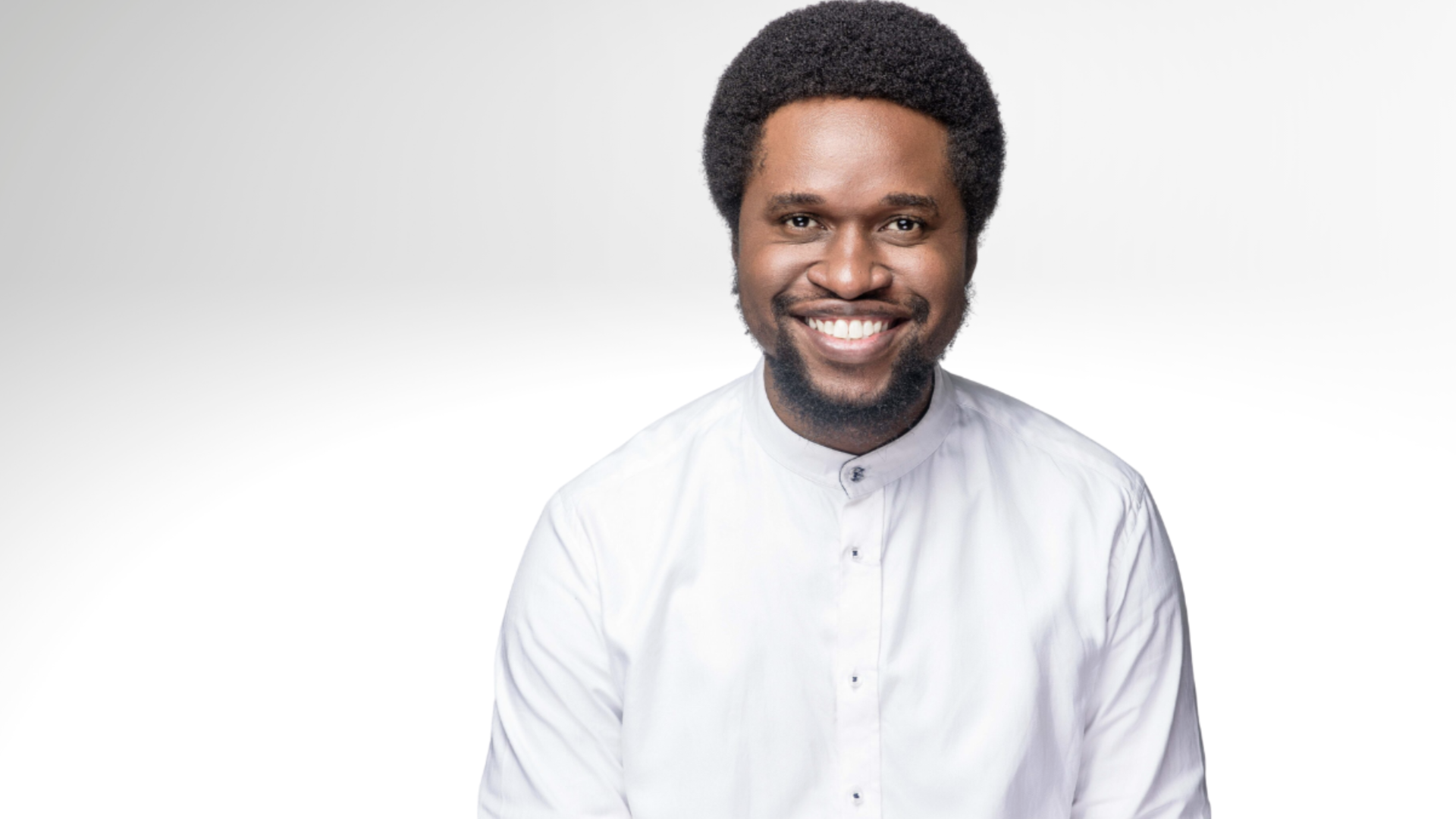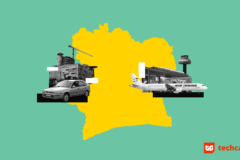This interview was conducted and contributed to TechCabal by Luke Sheehan, chief editor and copywriter at CrossFund, an investor collective focused on emerging markets.
Born and raised in Lagos, Nigeria, a city that “truly never sleeps”, investor and podcaster Uwem Uwemakpan describes many of the founders he works with as being like the citizens of the world’s “most populous black city”, meaning they are “full of hustle, always trying to build stuff”—a trait Uwemakpan himself shares. As busy with his own commentary as he is with investing and watering the startup garden across Africa, Uwemakpan caught CrossFund’s ear first as a polymathic guest on the Africa Tech Radio podcast in 2022. We wanted to ask him about where Nigeria’s tech industry is at now and where it’s going, how hyped or overheated fintech is, what successful startups are doing to scale regionally and internationally, and the role of crypto and African digital currencies. The following is an edited version of our conversation.
What would be the first scene in the movie of your life?
I find that an intriguing question. I would say it would be a baby or a child, probably two or three years old, playing with a LEGO set. That has inspired how I approach life. You get the “set”, but what you make out of it might be very different; it all depends on how you stack the blocks.
Did you ever read the instructions on LEGOs?
No! I love to figure things out on my own, and while that has been a superpower of mine, it has also limited me to some extent… I never really read instructions, even up to this day. When I buy something electronic, I just plug it in the wall and figure out how to make it work.
What do you think is the big story for this new year?
There are certainly sectors and verticals I think will thrive. Africa is a land of opportunity, and while there are a lot of challenges, there are chances to build products that are going to be highly impactful to the audience or customers you’re building for.
This ranges from fintech to agritech (the world has to eat) and to edtech—there is also an educational deficit across the continent—and to things like cross-border trading, and logistics.
To give you some more context, not so many IPOs came from the continent in 2022, and few, if any, unicorns happened; whereas in 2021, we saw quite a number—Jumia, Interswitch, Flutterwave, Fawry. This year, I don’t expect to see many companies with that kind of mark-up, but I do expect a lot of mergers and acquisitions. In fact, it’s already started to happen. We’ve seen acquisitions from various small-time players in Nigeria, Egypt, and Kenya. We’ve seen Flutterwave attempting to acquire a company from the UK, Railsr.
We’re also going to see companies begin to build out their business outside the continent. Having validated their offering there, they will look for countries with similar infrastructural deficits or cultural behaviour and try to expand. For example, I read of Kuda, a Nigerian neobank, who first expanded to the UK and are now opening up to Pakistan.
The Nigerian elections will be happening in February [This interview was conducted before the election]. I think that the world’s most populous black nation has some sort of direct effect on the ecosystem in Africa. Most investment in Africa historically goes to the Big Four: Nigeria, Egypt, Kenya, South Africa.
The election results in Nigeria will affect investor confidence and will also affect how many people keep on building and scaling businesses, both there and elsewhere.
Tell me more about Kuda and Pakistan. It seems the company expanded beyond Nigeria to Britain, then to Pakistan, following an “infrastructural deficit” in the latter country that resembled the one at home.
Yes. For example, the UK is a choice destination for immigrants from Africa. Especially now, post-Brexit, the door has been opened for tech talent to come into the country. So, for these immigrant founders building in the UK, it was sensible to look for another country that mimics similar consumer demographic challenges to Nigeria and expand there. Another example of this expansion pattern is Paga’s expansion to LATAM in 2020.
When they make this interesting jump, how do they find the funding?
I’m going to give a shout out to American investors. I think that a lot of the VC investments that come into the continent oftentimes come from the West. The US has investors more willing to take a bet, compared to Europe and the UK—here we find more venture debt.
We need more people building things and more people to believe in them. We need to see more people seed more early-stage founders who don’t necessarily meet the archetype of what a Western VC expects.
A problem with investors on the continent and around the world is that they skip over founders that don’t match certain criteria, and this results in lost innovation.
Coincidentally, investors are taking notice of the scaling speed of some African companies, growing six times faster than companies outside the continent. People are taking more risks, Africans are building businesses and the private sector is becoming more involved, as well as the diaspora. All these things make me bullish about what Africa will look like in 10 years.
Let’s focus on the fintech scene in Nigeria. The Flutterwave-Railsr deal is ongoing. What do you think will happen next with fintech in Nigeria?
There are still several problems to solve in Nigeria and across the continent. Yes, we see a lot of consolidation. The players will try to expand their offerings and acquire those that are already building in that space.
There is a lot of focus on one tech vertical, which is payment processing. But there are several aspects to fintech. It is at the intersection of many other industries. If you’re talking insurance, to democratise access to insurance, you need fintech; if you want to democratise access to healthcare, you need a solution from fintech. Also, crypto is still a valid element. I personally think that crypto is more relevant in Africa than anywhere in the world. We still struggle with cross-border payments on the continent, with inflation and currency valuations. Sending money from Nigeria to Ghana, a neighbouring country, can be a hassle, with fees. But with crypto, I can do it in three seconds.
The news came out that the Kenyan Central Bank wants to try to tax digital transactions with M-Pesa.
I think that’s a bad play. The issue with African governments is that they look at tax as the [only] way to raise money. They are not so creative. Unfortunately, the common man who works for, say less than a dollar a day, won’t want to use the digital currency.
The minute you begin to tax people they go offline and continue doing transactions through cash or peer-to-peer methods. The minute the Nigerian government began to kick against cryptocurrency, peer-to-peer transactions blew up. And then you can track nothing. That is even more of a disadvantage to the government.
We have heard about how remittances for Africans sending money home are unfairly priced.
This is a problem that transcends financial services. If I’m going to send something, say to Senegal, a francophone country in West Africa, the logistics company will, most likely, send it to France first. It’s cheaper for me to book a flight from the UK to the US than from, say, Nigeria to Egypt or even Ghana. When I was running one of the biggest accelerator programmes in Africa, I found out it is cheaper to call the UK or the US than to make phone calls across Africa. The governments are beginning to try to fix this through the African Continental Free Trade Area Agreement (AfCFTA). Doing transactions with neighbouring countries is a pain. Frankly, the policymakers, thus far, are not seeing beyond their noses, that a borderless Africa is to the benefit of everybody.
Let’s go back to where the money comes from for investment in Africa. You say Silicon Valley is still a source of a lot of it. However, in a recent interview you completed with Africa Tech Radio, there was mention of the Nigerian diaspora organising their money into inflows of investment into promising companies in Africa…
Absolutely. This is one of the things I want to organise. There is a large diaspora in the UK, US, and across the world. People have always moved abroad to find better opportunities; the instability on the continent will push more people to do this. Often, they become successful. I read a study recently outlining how Nigerian migrants in the US and in the UK make some of the highest-earning demographic.
Many of these people have got businesses still on the continent, or a grandfather or blood relative who is still alive. There’s often so much connection to the continent. They love their continent. The question is, how do we harness all this love and connection to the continent? How do we focus it on helping the continent grow?
Mentorship and knowledge sharing can help build great companies—these people have accumulated that. They’re working for the JP Morgans and other big companies.
It could be a huge channel for investment on the continent, and that’s something we shouldn’t overlook. I think every African country should be figuring out how they can harness the power of the diaspora. In that context, I don’t always approve of how DFIs like the World Bank work. Money is funnelled into economies through governments that are known for mismanagement. Why not find the best actor in the ecosystem and figure out how to get it to them? That would impact a greater number of people.
SMEs may become a great way to achieve this. CrossFund works with companies [SnappRetail and Asset Direct] that help SMEs in Pakistan and India to digitise and grow with optimised loans. Hundreds of millions of SMES could be brought in, spreading a lot of benefits. The project that caters to Indians was launched in Canada.
Exactly. There are founders who emigrate to the US, UK or elsewhere but still build products that can scale back to the continent and impact lives.
What about the AfCFTA—what kind of solution do you think will help it be more fluid?
We can’t do this without government policy. Remember, how the European Union was formed? That was basically government policy; and now it’s easy to take a train from one country to another. In Africa, that doesn’t exist.
We need better policies from the various governments to increase the ease of doing business, increase cross-border trading, and transportation. Without government policy it’s going to be hard to break the barriers.
In India and China, we saw innovation villages or innovation cities, and it can work that way in Africa too. Without government policy, it’s going to take Africa years to catch up.
Let’s play fast-forward with the movie of your life. What will you be doing in 10 years? And how about the last scene of this movie?
I want to create as much impact as I can. I want to create millionaires and billionaires, who will then create more millionaires and billionaires—it’s all about that domino effect. The closing scene in my life? It would be me on a yacht with my wife, sailing into the sunset; and on the shore will be all the people that I have impacted, waving and smiling back at me and thanking me for the work that I’ve done. That’s what motivates me. How much impact can I create in the world today that will live beyond me?





















